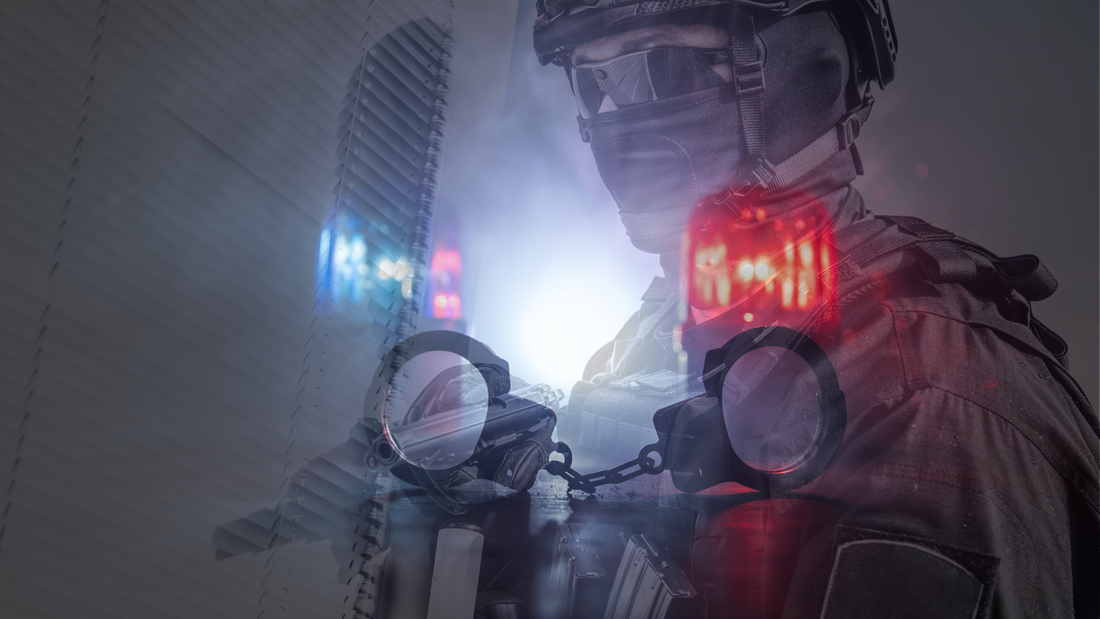|
Most everyone has heard of Breonna Taylor, the 26-year-old emergency technician in Louisville, Kentucky, who was gunned down by police after a no-knock warrant was mistakenly executed at her apartment. But have you heard of Dennis Tuttle and Rhogena Nicholas?
This married couple were napping at home in east Houston on the evening of Jan. 19, 2019, when the Houston Police Department’s Narcotics Division burst through their front door. An officer immediately fired a shotgun, killing their dog. Dennis Tuttle reached for a revolver and fired at the intruders. “Once the homeowners thought that their doors were being kicked down by home invaders, they started firing, and the police responded in kind,” Rep. Gene Wu (D-Houston) told Houston Public Media. Nicholas, 58, was shot twice. Tuttle, a 59-year-old Navy vet, was shot nine times. Both died at the scene. Four police officers were wounded, one paralyzed. Many observers strongly dispute the official contention that none of the officers’ injuries came from friendly fire. The veteran narcotics officer who obtained the no-knock warrant from a municipal court judge was later found to have lied. He said that the couple had been selling “black tar” heroin, a fact he had learned from a confidential informant. But there was no heroin or even a confidential informant. That officer, Gerald Goines, was hit with multiple federal and state charges, including two murder charges. No-knock warrants are allowed by courts when there is an overwhelming threat of violence or destruction of evidence. Like many extraordinary law enforcement procedures – from the ability of the FBI to obtain Americans’ personal information from a surveillance program meant to catch foreign terrorists and spies, to “caretaker” entries by police into homes – the extraordinary no-knock warrant has become routine. But at least in the case of no-knock warrants, states are beginning to restrict these procedures. Rep. Gene Wu, a Democrat, introduced a bill in the Texas House of Representatives to require a chief of police or a designated supervisor to approve no-knock warrants. Officers carrying out the warrant would have to be in uniform or otherwise identifiable as police. Rep. Wu’s bill passed overwhelmingly in the House by a 104-33 margin, with strong Republican support. If the Texas Senate passes it and Gov. Greg Abbott signs it, Texas will become the fourth state after Florida, Oregon, and Virginia to restrict no-knock warrants. In our many federal and state lawsuits, amicus briefs, and blogging, PPSA stresses that authorities must adhere to the Constitution’s Fourth Amendment requirement for a probable cause warrant to enter a home or surveil someone’s private information. But warrants are meaningless if the process is corrupted or judges act as rubber stamps. The municipal judge in this case had routinely approved many such no-knock warrants. He had not, the judge told The Washington Post, reasoned that officer Goines was a liar. It turns out that Goines was a prolific liar. Texas authorities are now having to work through 14,000 cases touched by Goines to find innocent people railroaded by his false statements. So far, more than 160 cases have been dismissed. Some people serving prison sentences have been exonerated. If Rep. Wu’s bill becomes law, it will tighten the requirements for a no-knock warrant. Municipal court judges who are not state-licensed attorneys will not be allowed to sign bench warrants for no-knocks. We would add, however, that these same principles need to be applied to the highest levels of law enforcement, including the secret Foreign Intelligence Surveillance Court. A Department of Justice investigation revealed that the FBI lied by omission and commission to the judge of the secret court – and even submitted forged evidence – to secure a warrant to surveil an aide, Carter Page, in a presidential campaign and transition. The warrants issued by the secret FISA court rarely, if ever, result in doors being knocked off their hinges. The existence of these warrants often never come to light, even to the targets of an investigation, yet they can be in their own way destructive to civil liberties. If only a qualified judge should scrutinize a no-knock warrant for genuine evidence of an unmitigable danger, so too should a FISA judge have the advice and scrutiny afforded by civil liberties experts, or amici, in their secret proceedings. Comments are closed.
|
Categories
All
|


 RSS Feed
RSS Feed